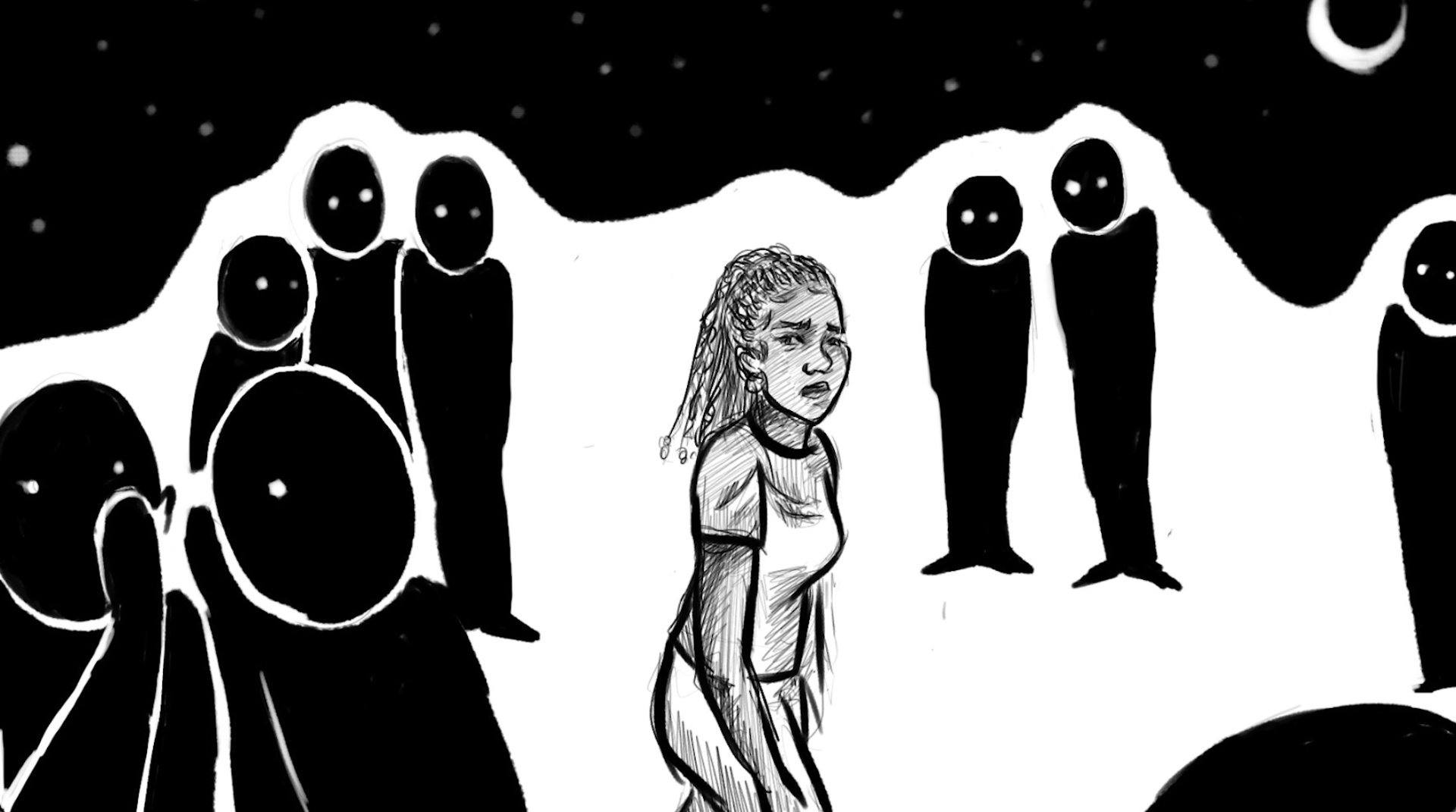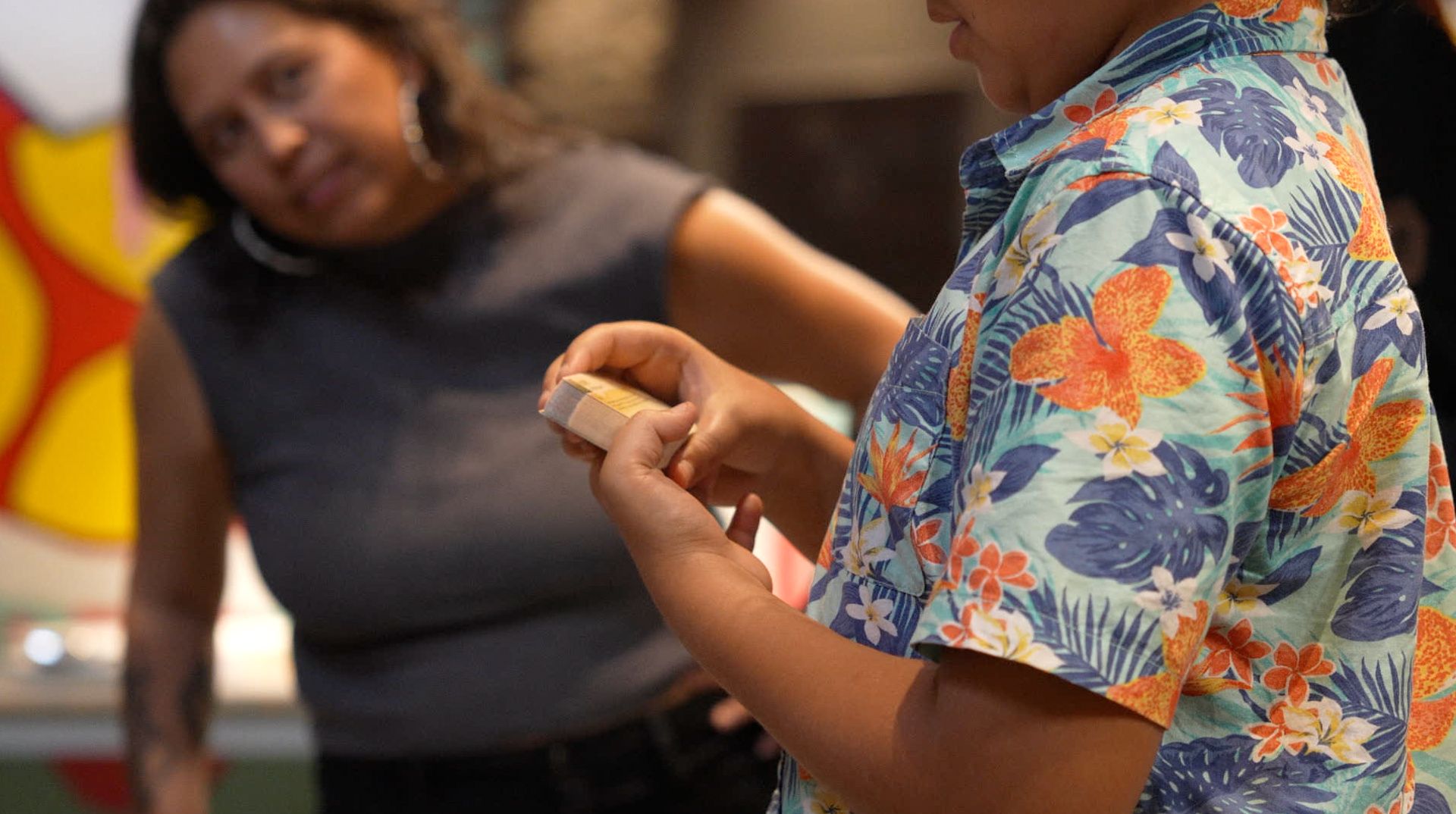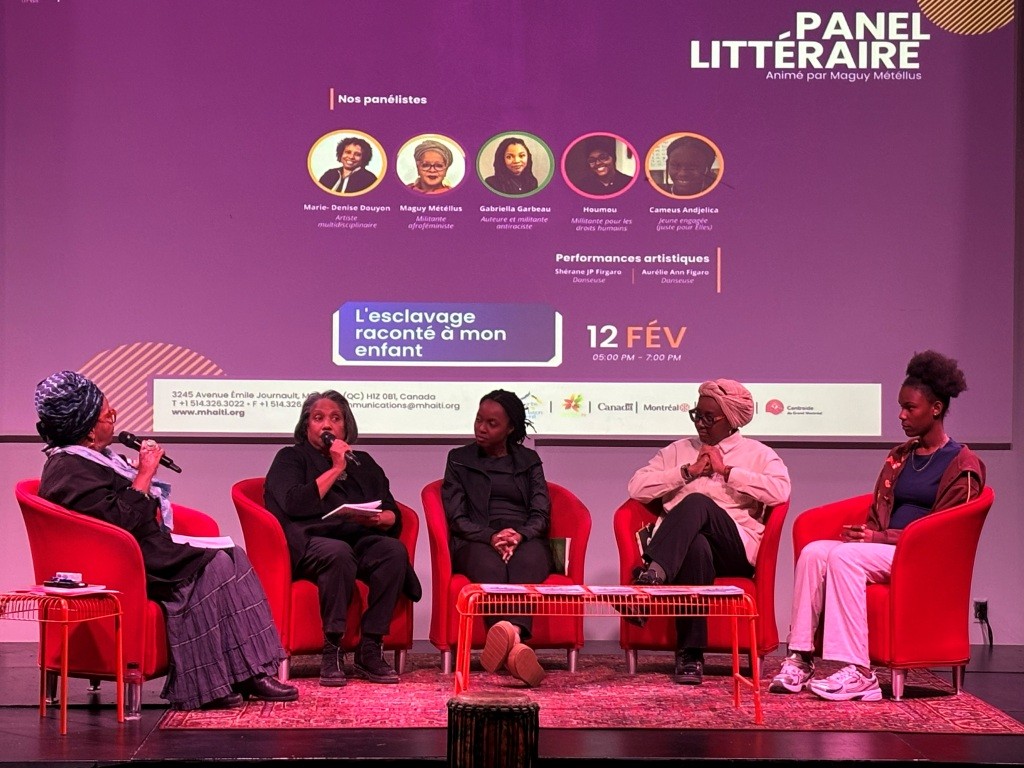Since late 2024, services for persons with disabilities in Quebec have undergone several budget cuts. Adapted transport, accessible housing, home care – there have been many setbacks. But it was a federal decision that caused the biggest shock: the unannounced disappearance of the Ministry of Diversity, Inclusion and Persons with Disabilities, barely six years after its creation in 2019. For the 23% of Canadians who live with a disability, this elimination is more than just an administrative reorganization. "It's a symbolic recognition that's collapsing," summarizes Lila H. Ratsifa, executive director of the Multiethnic Association for the Integration of Persons with Disabilities (AMEIPH). What place are these citizens truly being given? And more importantly, what will be the consequences of such a decision on their daily lives, which are already full of obstacles? We went to meet those who live this reality day by day. A report.
Montreal, Wednesday, May 21. A week after the presentation of the new ministerial cabinet, on Saint-Laurent Street, a red door opens into a discreet building. Inside, on the top floor, we find Lila Ratsifa, accompanied by Martha Twibanire, an active member of the association. With a frank smile, Martha wears a bright blue jacket and ginger hair styled in an afro. Polio deprived her of the use of her legs at the age of 10. In 1999, she fled Rwanda after losing her husband and one of her children in the genocide. She now lives in Montreal, uses a wheelchair, and works as a bank advisor.
"I just learned that the ministry that represented us has disappeared. What does that mean? That we're too much? That we're a bother?" She pauses, then adds: "I pay my taxes. I contribute. As a bank advisor, I've helped dozens of people access homeownership. And yet, they're trying to make me disappear. As if I don't count."
For her, the disappearance of the Ministry of Diversity, Inclusion and Persons with Disabilities is a worrying sign: "They see us as a burden, not as full-fledged citizens. They don't see our value," she states.
Lila confirms this. "We looked at the composition of the new cabinet. We're happy to see gender parity, to see racialized people... that's good. But not a single person has a disability."
"We hope that the elimination of this ministry is solely attributable to the fact that they understood how disability falls under several ministries: health, housing, transport, immigration... But we also fear that if no one defends a global vision, it will get diluted. And what gets diluted, gets lost."
In the entrance, Emmanuel appears. Blue coat, dark glasses, navy cap. At 72 years old, this retiree of Congolese origin lives with a visual impairment. He sits down gently and speaks calmly: "I, too, have worked all my life. I came with my diplomas, my permit, my papers. I followed the rules. Canada welcomed me, yes, but that means it must also accommodate me. Even if I'm disabled."
He sighs. "I told myself: let's vote Liberal, it will be better. But now, I'm lost."
"Perhaps Mark Carney simply doesn't know anyone with a disability," Martha says with a chuckle.
"Since I arrived in Canada 25 years ago, we've made progress, it's true," she resumes more seriously. "Adapted transport, for example. But these are things we fought for. Nothing was given to us. Every small step forward, you have to fight for it. And often, you have to fight again not to lose it."
The disappearance of the ministry is interpreted as a disavowal. Even though the management of services for persons with disabilities largely depends on the provincial level, this federal decision has a very heavy symbolic significance. "We feel erased. As if we were useless," Emmanuel murmurs.
Stories of the daily problems they already face follow one after another: contemptuous looks, housing refusals, inaccessibility of public places or housing: "There are young disabled adults who are placed in seniors' residences, due to lack of adapted housing!" Martha exclaims, frowning. "At 24, you should be inviting friends over, listening to music, living your youth. Not finding yourself living with an 85-year-old..."
"Many people voted for the Liberals thinking this ministry would remain, but ultimately, it disappeared."
Maude Massicotte, co-founder of DéfPhys Sans Limite, an organization that defends the rights of young adults with disabilities aged 18 to 30, shares the same opinion. She appears on screen, with her hair down and a discreet smile. Maude is 33 years old and lives with a disability herself – facial paralysis – and uses a wheelchair.
"I went to Quebec City on May 14 to protest," she begins. "It was consultation day, with the Ministers of Health and Seniors, on the new home care plan. But they spoke exclusively about seniors. Nothing about persons with disabilities. We get the impression that to have a minimum of services, you have to get old..."
She continues: "There are persons with disabilities who are only entitled to one or two baths a week. Otherwise, it's a sponge bath. And if you live with your partner or a family member? They cut your help with housework, meal preparation... You become dependent on the person who lives with you."
But the hardest blow for her is the abolition of the federal ministry responsible for persons with disabilities.
"It's like we're disappearing a second time," she resumes. "We're not seen much as it is. Now, they're completely removing the only political space dedicated to us." In the same breath, she continues: "We're angry! When Trudeau left, the ministry disappeared. We wanted to believe it was temporary. We hoped that with the formation of the new cabinet, we would regain this representation. But no. Nothing. Many people voted for the Liberals thinking this ministry would remain, but ultimately, it disappeared."
The feeling of being invisible is heavy, Maude shares. And according to her, when no person with a disability sits at the table, policies do not reflect the full reality of Canadian citizens.
"It takes a person with a disability in government to understand our reality."
She remembers the influence of the previous minister, Carla Qualtrough, herself a person with a disability, who championed the Canada Disability Benefit, a $200 monthly allowance for those living below the poverty line.
"It seems like it takes a person with a disability in government to understand our reality," she says, raising her hands. "She knew what she was talking about. She fought for this benefit. But now, there's no more ministry, and there's no minister with a disability; so, we wonder: if there's no one like us in the cabinet, who will fight for us?"
Maude expresses a fear shared by the members of her organization: the fear that the disappearance of the ministry will lead to other setbacks and that the few hard-won gains are now precarious.
"In Quebec, they have already started cutting home adaptations. This amounts to thousands of dollars that people must now pay out of their own pockets to make their homes accessible."
She concludes dryly: "They give us $200, but they cut everywhere else. It's an illusion of a social safety net."
Economic Interests at the Expense of Persons with Disabilities?
For Normand Boucher, a sociologist and political scientist specializing in disability policies, this abolition of the ministry reveals the country's new interests in the context of the trade war with the United States. "The priority is the economy, then to give Canadians a new identity," he explains, alluding to the new Ministry of Canadian Identity and Society.
This economic refocusing is reflected in the very language of decision-makers, he adds. "When we talk about disability, it's always from a cost perspective. Disability is seen as a problem for the economy, as a burden." For him, this vision is dangerous because it reduces citizens to their potential economic productivity, further marginalizing those who don't fit this mold.
The expert also points out that this logic of reshuffling is driven by a renewed government team, but one oriented towards technocratic governance. "The current prime minister clearly wanted to distinguish himself from the previous one. He appointed about ten new ministers who were not there under Trudeau. These are people who haven't necessarily been driven by political struggles, but by a more managerial vision of the state."
The result? Social issues take a back seat, particularly those affecting persons with disabilities. "This ministry was a symbol. Its disappearance sends a message: these are no longer front-burner issues."
But for the sociologist, it's not just a symbolic matter; it's a very concrete setback, especially because Canadian governance relies on a complex sharing of responsibilities between the federal and provincial levels. "The federal government doesn't provide services. It transfers funds to the provinces, which use them as they wish. The result: territorial inequalities are enormous. Living in Vancouver or Winnipeg is not at all the same experience when you're in a wheelchair."
"In Quebec, a wheelchair is a collective good," he continues. "It's funded by taxes. In Ontario, 50% is borne by the individual. We are far from an equitable model."
And this setback is accompanied by a return to charitable logic: "There's an increasing reliance on charity, on private foundations. Disability is a collective responsibility. Now, we're returning to the idea that it's up to the individual to manage their disability, with their own means."
However, for the expert, this fragility of the rights of persons with disabilities has serious consequences. "It reminds us that nothing is ever definitively acquired, and this applies to all marginalized groups. There's this feeling of fragility. Rights are never guaranteed. The context can change very quickly. What we see in the United States or Europe proves this, by the way."
Contacted by La Converse, the Prime Minister's Office replied that "the work to support Canadians living with disabilities and to promote diversity continues within the relevant ministries, both within the government and politically." While the Ministry of Diversity, Inclusion and Persons with Disabilities has been dissolved, two ministers now assume these responsibilities.
Patty Hajdu, Minister of Employment and Families, will be responsible for disability-related issues, including the reform of the Disability Tax Credit and the development of a justice framework for persons with disabilities. For his part, Minister Steven Guilbeault will take charge of diversity initiatives, including the continuation of funding for the 2SLGBTQI+ Community Capacity Building Fund.
However, no explanation was given for the formal abolition of the ministry or the absence of a public announcement on the matter.
Lila H. Ratsifa, executive director of AMEIPH, assures us that the organization and its partners are preparing a statement to be sent to the government. Their desire is for each ministry to have a service for persons with disabilities. "It is also our role, as an organization, to loudly proclaim the importance of having these structures responsible for persons with disabilities in the various ministries," she concludes.










.jpg)